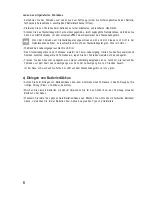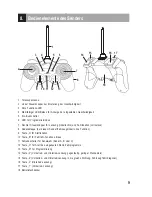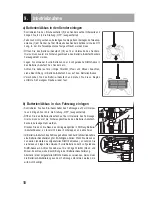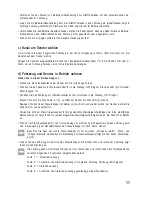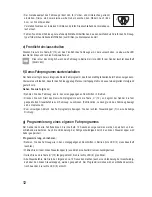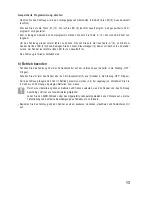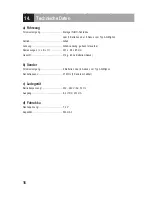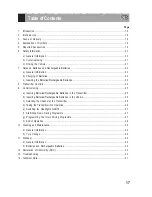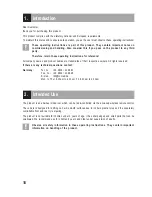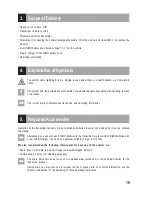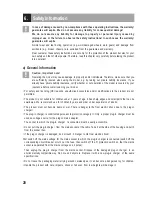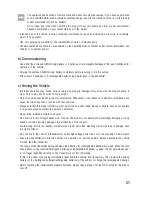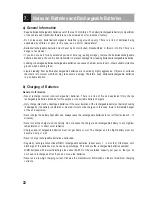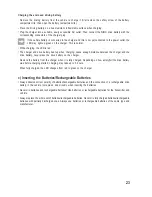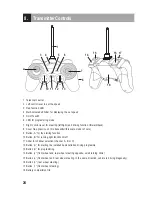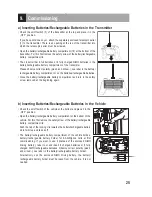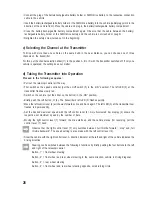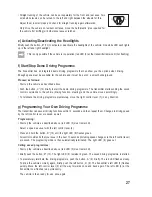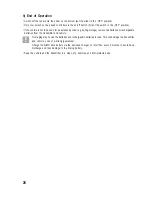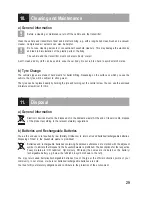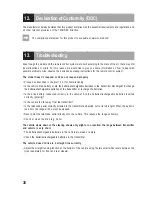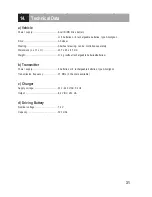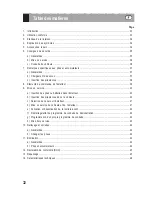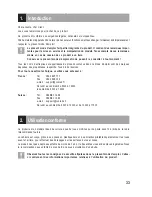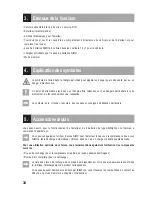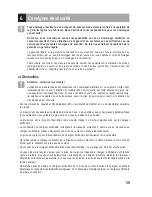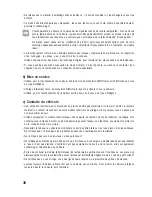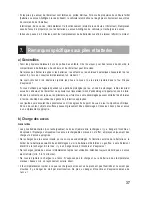
22
7. Notes on Batteries and Rechargeable Batteries
a) General Information
• Keep batteries/rechargeable batteries out of the reach of children. The battery/rechargeable battery compartment
of the vehicle and transmitter therefore can be screwed shut for reasons of safety.
• Do not leave any batteries/rechargeable batteries lying around openly. There is a risk of batteries being
swallowed by children or pets. In this case, see a doctor immediately!
• Batteries/rechargeable batteries must never be short-circuited, disassembled or thrown into fire. There is a
danger of explosion!
• If you do not use it for any extended period of time (e.g. during storage), remove the batteries/rechargeable
batteries inserted in the vehicle and transmitter to prevent damage from leaking batteries/rechargeable batteries.
• Leaking or damaged batteries/rechargeable batteries can cause chemical burns to skin. Wear suitable protective
gloves when handling them.
• Liquids leaking from batteries/rechargeable batteries are chemically highly aggressive. Objects or surfaces
that come into contact with them may take severe damage. Therefore, keep batteries/rechargeable batteries
in a suitable location.
b) Charging of Batteries
General Information
• Never recharge normal (non-rechargeable) batteries. There is a risk of fire and explosion! Only charge
rechargeable batteries intended for this purpose. Use suitable battery chargers.
• Only charge intact and undamaged batteries. If the outer isolation of the rechargeable battery or battery housing
is damaged or the battery is deformed or bloated, it must not be charged. In this case, there is immediate danger
of fire and explosion!
• Never charge the battery right after use. Always leave the rechargeable batteries to cool off first (at least 5 - 10
minutes).
• Never cover the charger and the battery. Do not expose the charger and rechargeable battery to any high/low
temperatures or to direct solar radiation.
• Charges and rechargeable batteries must not get damp or wet. The charger and the flight battery must not
become damp or wet!
• Never charge rechargeable batteries unattended.
• Regularly recharge conventional NiMH rechargeable batteries (about every 1 - 2 months). Otherwise, self-
discharge of the batteries may cause deep discharge. This renders the rechargeable batteries useless!
NiMH batteries with low self-discharge lose about 20-25% of the contained capacity per year, so that you do
not need to recharge as often if you do not use the batteries.
• Never use a too-high charging current. Observe the manufacturer information on ideal or maximum charging
currents.

